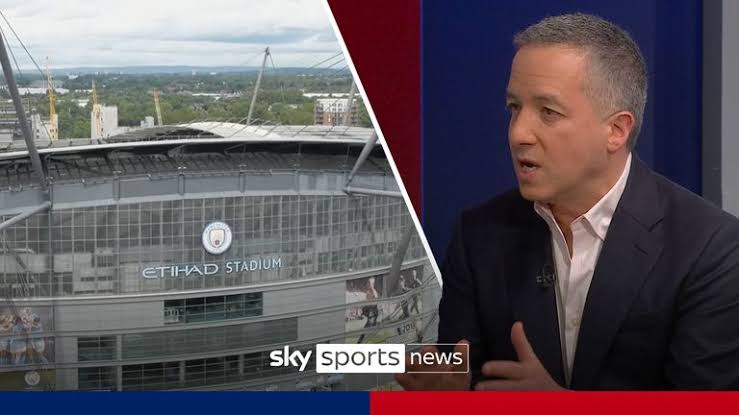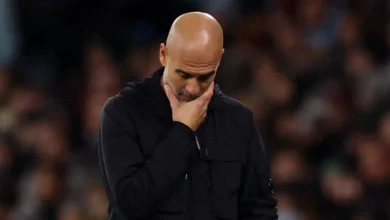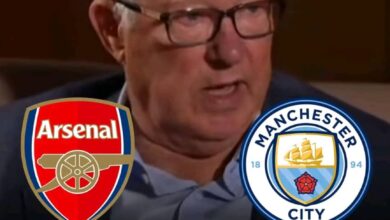Premier League in crisis as they lose legal battle with Man City

The Premier League has suffered a significant setback following a high-profile legal battle with Manchester City. The case revolved around the league’s controversial sponsorship rules, which Manchester City challenged after the league blocked certain sponsorship deals in 2023. The rules were established with the aim of preventing clubs from entering into sponsorship agreements with companies owned by their club owners, often located in the same country as the club’s parent company. The Premier League argued that this was to avoid any unfair financial advantages and to ensure that clubs were abiding by the strict financial fair play regulations that govern European football.
The legal battle started when the Premier League introduced new regulations, known as the Associated Party Transaction (APT) rules, in December 2021. These rules were implemented after concerns over the ownership of Newcastle United by a Saudi-led consortium, which raised fears of inflated sponsorship deals between the club and companies affiliated with the owners. The APT regulations were designed to limit the scope for clubs to make excessive sponsorship deals with associated entities that could bypass financial rules and give clubs an unfair advantage in the market. These rules applied to all Premier League clubs, but the focus was largely on high-profile cases like Manchester City and Newcastle, both of which had ties to foreign ownership with the potential to exploit the system.
Manchester City, a club with significant backing from the Abu Dhabi United Group, found itself at the center of this dispute. In 2023, the club had its sponsorship agreements with Etihad Airways and First Abu Dhabi Bank blocked under the new regulations. The Premier League argued that these deals were not in line with what they considered a fair market value. They contended that the sponsorships were artificially inflated to give Manchester City a financial edge over their competitors. This ruling angered City’s management, who believed that the regulations were unfair and unlawful. In response, the club decided to take the Premier League to court, launching a legal challenge against the APT system. Manchester City argued that these rules infringed on their rights and were overly restrictive, limiting their ability to enter into legitimate business agreements.
At the heart of the legal challenge was the assertion that the Premier League’s rules were unfairly punitive, particularly when it came to shareholder loans. These loans, often provided by the club’s stakeholders, were not subjected to the same Fair Market Value (FMV) assessments that commercial sponsorship deals were. This created an imbalance, with some financial transactions bypassing the scrutiny that other business dealings faced. Manchester City argued that this discrepancy was a key issue with the APT system and that the regulations needed to be reformed.
The legal battle continued into 2024, and the Premier League found itself under increasing pressure as the case progressed. In September 2024, the tribunal, an independent panel of legal experts, sided with Manchester City on some aspects of the case. They agreed that there were significant flaws in the APT rules, particularly in how shareholder loans were treated differently from sponsorship deals. The tribunal also found that several elements of the rules were unlawful, marking a major victory for Manchester City.
Despite this partial victory, the Premier League’s chief executive Richard Masters attempted to downplay the tribunal’s ruling. He argued that the tribunal had only found certain elements of the rules to be unlawful and that these could be amended without invalidating the entire system. This position was not shared by Manchester City, which took the view that the entire set of APT rules was flawed and that the Premier League’s actions were misleading. City’s legal team, led by top barristers Paul Harris KC and Lord Pannick KC, maintained that the tribunal’s ruling meant the entire regulatory system was invalid, not just certain parts of it.
In response to the tribunal’s findings, the Premier League made amendments to the APT rules in November 2024, which were subsequently voted through by the majority of clubs. However, Manchester City did not accept these changes and launched a second legal challenge, arguing that the amended rules were still unlawful. The club’s legal team continued to push the narrative that the APT system, in any form, was unfair and detrimental to their interests.
The legal battle took another significant turn in February 2025, when the tribunal returned with its final verdict. The panel ruled that the APT rules, in their entirety, were unlawful. This verdict was a major blow to the Premier League, as it meant that all the decisions made under the APT regulations from December 2021 to November 2024 were now void. Any clubs that had been negatively affected by these decisions, including Manchester City, could now seek compensation. This ruling opened the door for clubs to challenge the Premier League’s actions and potentially recover financial losses if they believed that the APT rules had harmed their competitive performance.
This decision also has far-reaching consequences for the Premier League. The ruling suggests that, for nearly three years, the league operated under an unlawful set of rules that could have caused financial harm to various clubs. This raises questions about the fairness and integrity of the Premier League’s decision-making process during this period. Clubs that had their sponsorship deals blocked or reduced in value due to the APT rules could now look for ways to recover lost revenue. The implications of this are massive, as it could lead to a wave of legal claims from clubs that feel they were unfairly treated under the previous regulations.
Furthermore, the Premier League may now be liable for the legal costs incurred by both Manchester City and its own legal team. The combined legal fees could amount to nearly £20 million, which is a significant sum for the league to cover. Premier League chief executive Richard Masters acknowledged the situation in an email to the clubs, where he informed them that the old APT rules were no longer in effect. However, he reassured the clubs that the new rules, which had been voted in by the majority, would still be enforced.
The new set of rules, which were voted through in November 2024, are meant to address some of the issues raised by the tribunal. However, Manchester City’s ongoing legal challenge against these amended rules casts doubt on their future. If the tribunal rules against the new rules as well, it could mean that the Premier League is left without a functioning system for regulating sponsorship deals. This would have serious implications for the league’s ability to maintain financial fair play and could lead to further chaos.
The APT rules were originally introduced to tackle the issue of inflated sponsorship deals, particularly after the Saudi-led takeover of Newcastle United. The Premier League’s goal was to prevent clubs from signing overly generous sponsorship deals with companies connected to their owners, which could have given them a financial edge over other teams. The rules were designed to ensure that all sponsorship agreements were in line with the market value and did not artificially inflate a club’s financial resources. However, Manchester City argued that the rules were overly restrictive and unfairly targeted certain clubs, particularly those with foreign owners.
In addition to the financial implications of the tribunal’s decision, the ruling also raises questions about the Premier League’s governance and its ability to enforce fair competition. The league’s handling of sponsorship deals has been a point of contention for some time, and this legal battle has exposed weaknesses in the system. The ruling could force the Premier League to rethink its approach to regulating sponsorship agreements and may lead to a broader reform of the financial rules governing English football.
The long-term effects of the tribunal’s decision are still unclear, but it is likely to lead to significant changes in the way the Premier League operates. Clubs like Manchester City, who have been at the center of this legal dispute, may now be able to negotiate more favorable sponsorship deals with companies affiliated with their owners. This could lead to a shift in the competitive balance of the league, as clubs with powerful financial backers could have an advantage in securing high-value sponsorships. The Premier League will have to adapt to this new reality and find ways to ensure that financial fair play remains a key principle of the competition.
The case also highlights the growing influence of legal challenges in football, particularly when it comes to financial regulations. As the sport becomes increasingly commercialized, the stakes for clubs are higher than ever. The ruling in favor of Manchester City sets a precedent that could encourage other clubs to challenge the league’s decisions in court if they feel that their financial interests have been harmed. This could lead to a more litigious environment in English football, with clubs using legal action as a tool to secure their financial position.
For Manchester City, this legal victory is a significant moment in their history. The club has long argued that the Premier League’s rules were unfairly targeting them and that they should have the right to negotiate sponsorship deals on the same terms as other clubs. With the tribunal ruling in their favor, City has successfully defended its position and may now have the opportunity to secure more lucrative sponsorship agreements in the future. This victory could also strengthen the club’s position in any future legal battles with the Premier League, particularly in relation to the ongoing investigation into alleged financial rule breaches.
Looking ahead, the Premier League will have to carefully consider its next steps. The tribunal’s ruling has cast doubt on the future of the APT rules and could lead to further legal challenges from clubs. The league may need to overhaul its approach to sponsorship regulation and find a way to create a more transparent and fair system. This could involve revisiting the financial fair play rules and ensuring that they are applied consistently across all clubs.
In conclusion, the legal battle between Manchester City and the Premier League has had a profound impact on English football. The tribunal’s decision to strike down the APT rules as unlawful has opened the door for potential compensation claims from clubs that were affected by the previous system. The Premier League now faces a period of uncertainty as it deals with the aftermath of this legal defeat. The ruling could lead to significant changes in the way the league regulates sponsorship deals and may have far-reaching consequences for the future of financial fair play in football. The outcome of this case will shape the landscape of English football for years to come.















